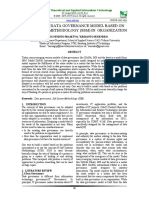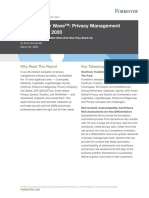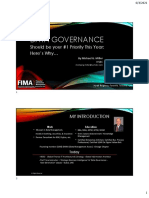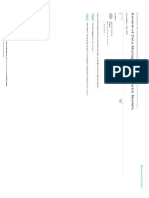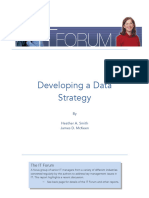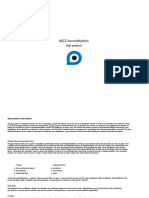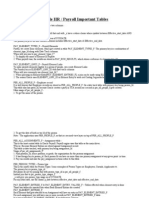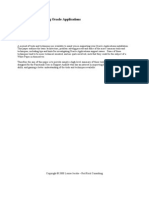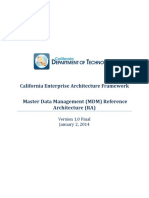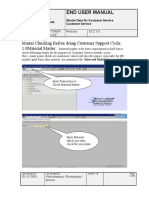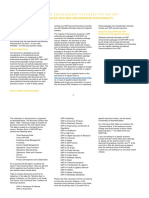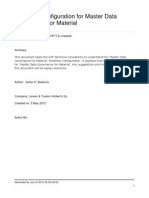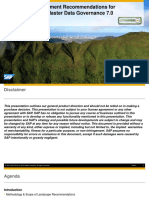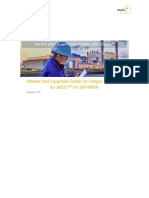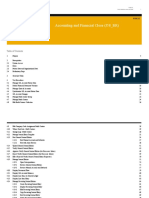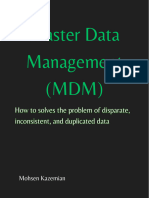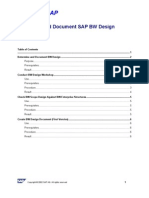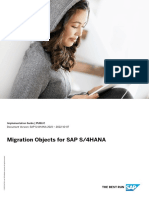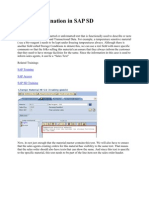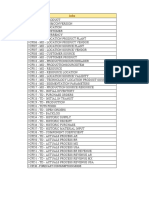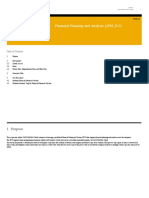Master Data Management Policy
1. Purpose
This policy defines the principles, roles, and governance structures for managing master
data across the enterprise. It ensures that master data is captured, maintained, and used in
a consistent, accurate, and governed manner to support operational excellence, analytics,
and decision-making.
2. Scope
This policy applies to all master data domains — including but not limited to product,
customer, supplier, employee, financial, material, and location data — and to all systems
involved in the capture, maintenance, integration, and use of this data.
It also covers the creation and maintenance of the enterprise business glossary, which
supports consistent definition and understanding of data terms across the organization.
3. Policy Statement
We follow a federated master data model with centralized governance. Each domain has a
designated and agreed source system of record, while capture systems enforce validation at
the point of entry. The ERP system is the system of record for selected domains, while
others may be mastered in different systems, depending on business ownership and
process architecture.
A centralized MDM hub supports data quality monitoring and exception reporting, not
master data maintenance. A formal enterprise-wide business glossary is maintained to
ensure clarity, consistency, and alignment of key business terms and data elements.
4. Key Principles
Designated System of Record: Each master data domain must have a defined and agreed
source system of record, governed through domain-specific governance forums and
documented in enterprise data architecture.
Quality at Source: Validation rules must be implemented as early as possible in the data
capture process to ensure the integrity and reliability of master data.
Integrated Data Flows: Master data flows from capture systems to the source system of
record, and is then propagated to downstream systems through governed and
monitored integration pipelines.
MDM Hub for Visibility: The MDM hub serves as the enterprise platform for exception
reporting, lineage visibility, and data quality monitoring.
� Business Glossary: A centrally governed business glossary will be maintained to define
business-critical data terms consistently across the enterprise. Domain stewards are
responsible for defining and maintaining glossary entries relevant to their data.
Stewardship and Accountability: Data Stewards are embedded in business functions and
are accountable for the quality and completeness of master data in their domains.
Governance Forums: Each data domain is supported by a governance forum responsible
for reviewing data quality performance, approving changes to validation rules, and
overseeing glossary development.
Transparency and Lineage: Data dictionaries, glossary definitions, and data lineage
documentation are maintained to support traceability, audit readiness, and common
understanding.
5. Roles & Responsibilities
Data Owners: Accountable for defining the source system of record, data standards, and
glossary entries for their domain. Participate in governance forums.
Data Stewards: Responsible for the quality of data in their domain. Maintain glossary
entries, resolve issues flagged in exception reports, and ensure validation effectiveness.
MDM & Data Governance Team: Facilitate governance forums, maintain the MDM hub,
manage the enterprise business glossary platform, and provide data quality insights.
IT & Architecture Teams: Ensure systems are integrated in line with MDM principles
and support validation enforcement, lineage tracking, and secure data flows.
6. Business Glossary Management
The organization will maintain a single enterprise business glossary hosted centrally, with
domain-level contributions and ownership.
Terms in the glossary will be reviewed and approved by data governance forums, ensuring
alignment across business functions.
Glossary entries must include term definition, domain owner, applicable systems, related
data elements, and business rules where applicable.
7. Data Quality Monitoring and Resolution
The MDM hub will generate exception reports to highlight quality issues, enabling
resolution by relevant Data Stewards.
Trend reports and data quality KPIs will be developed and made accessible to all Data
Owners and Data Stewards, so that the state of data quality is visible and transparent across
the organization.
Data quality KPIs will be reviewed by domain forums and used to guide continuous
�improvement initiatives.
Recurrent issues may be escalated to enterprise governance forums or executive leadership.
8. Compliance
All teams involved in creating, modifying, or consuming master data must comply with this
policy. Governance forums will oversee compliance, and repeated non-conformance will be
subject to escalation.




